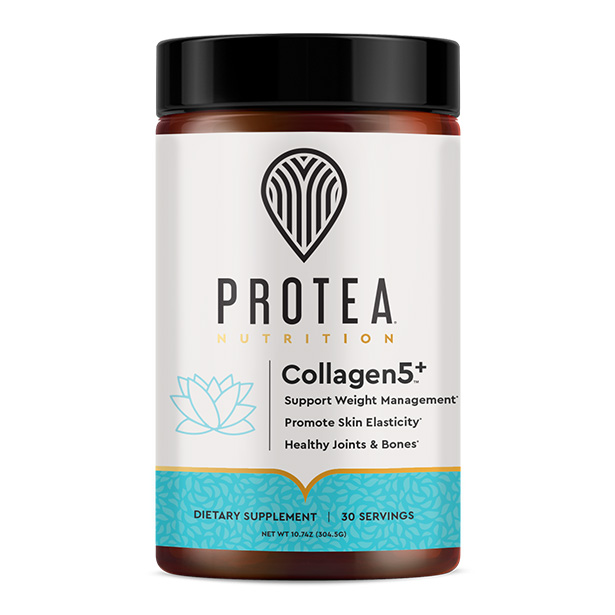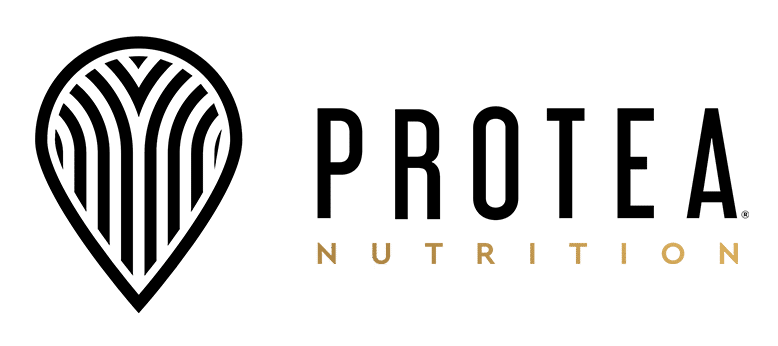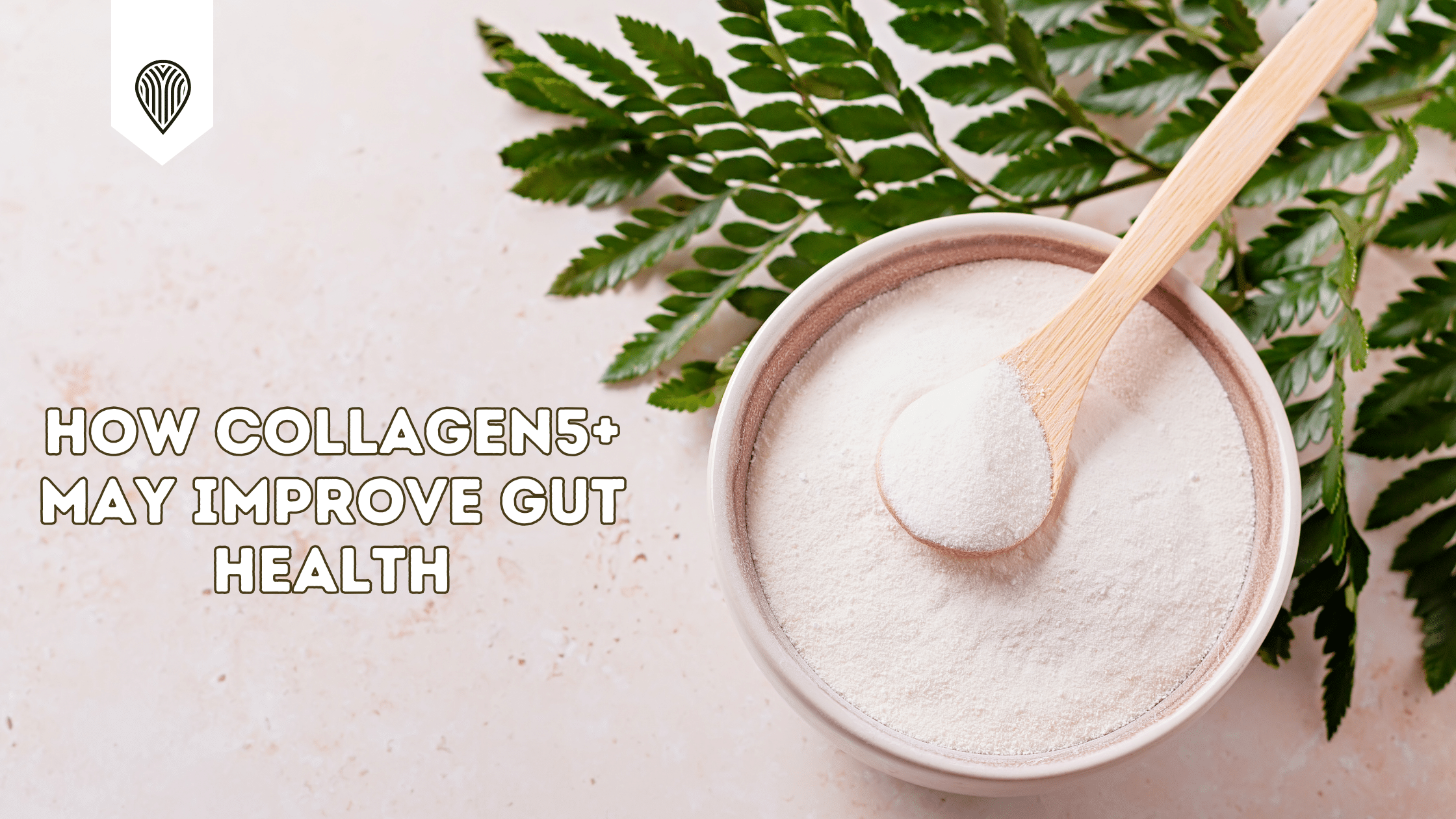When we think of collagen, we might immediately think of healthy hair, skin and nails, or even joint pain management. But did you know that collagen can play a role in gut health?
Collagen makes up 30% of the protein in your body. Its main role is to provide support and structure to your body. Skin, muscles, bones, tendons, ligaments and other connective tissues are primarily comprised of collagen (1). There are over 28 different types of collagen. The main types are Type I and Type II (2). Type I collagen makes up 90% of the collagen in your body and makes up hair, skin, nails, organs, and bones. Type II collagen builds cartilage and maintains joint health and the integrity of the gut lining. *
As we age, the body produces less and less collagen. Signs of a decline in collagen include wrinkle and crepey looking skin, hallowed eyes, weakening muscles and joint pain, loss of mobility, and gut issues due to a weakened digestive tract (2). *

Maintaining a strong gut includes keeping the digestive tract and stomach lining secure and strong. A weakened gut lining can lead to a condition known as “leaky gut”. Leaky gut syndrome is caused by weakening in the intestinal wall. When this happens, food and waste particles pass through the weakened barrier into the blood stream, causing inflammation in the body. This inflammation leads to bloating, gas, irritable bowel syndrome (IBS), and even food sensitivities and intolerances (3). Foods that can trigger leaky gut include gluten, processed meats, refined oils, refined sugars, baked goods, artificial sweeteners, dairy products, and processed snack goods (3).*
Lifestyle factors can also contribute to a reduction in collagen production. These include smoking, poor diet (usually inclusive of the foods mentioned above) and too much sun exposure. Autoimmune disorders like Rheumatoid arthritis, lupus, and scleroderma can also reduce collagen production.
While changing your lifestyle and removing these trigger foods can help stop the weakening of the digestive tract, collagen can’t be absorbed in its whole form. The body must break down the collagen in the foods you eat into smaller amino acids. Therefore, consuming foods rich in collagen doesn’t necessarily contribute to higher collagen levels. To be absorbed by the body, collagen has to be broken down into smaller peptides and amino acids (1). Collagen peptides are absorbed through the digestive tract. *

One study done in May 2022, showed that use of a daily collagen peptide supplement may help to reduce bloating and improve digestive symptoms in otherwise healthy females without any other changes to lifestyle or diet. Also revealed in that study, was the lack of current consumer awareness on the effectiveness of collagen for digestive health. Very few physicians and dietitians know enough to prescribe this to patients suffering with distress. (4) *
Our focus is on maintaining and achieving a healthy lifestyle through use of natural products. Our newest supplement, Collagen5+, uses five types of collagen from grass fed, wild and cage free natural sources. It is unflavored so it’s perfect to add to your favorite beverage, over oatmeal, or mixed into cereal milk! Enjoy daily to see the most benefits for your digestive system!
*These statements have not been evaluated by the Food and Drug Administration. This product is not intended to diagnose, treat, cure, or prevent any disease.





